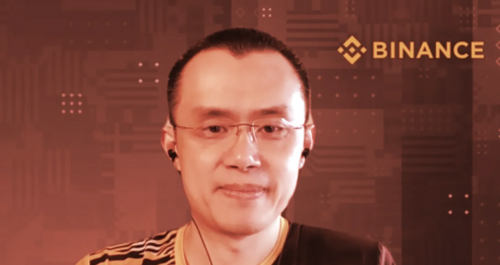
By Kate Irwin

Binance CEO Changpeng "CZ" Zhao. Image: Decrypt
Binance CEO Changpeng “CZ” Zhao thinks the Bitcoin bear market is good for crypto.
In a conversation with Messari CEO Ryan Selkis at the Mainnet conference Wednesday, CZ—who connected remotely via video chat—said a four-year crypto market cycle is normal and that a bear market is healthier in the long term than a seemingly never-ending upward trend.
“Price corrections are actually good,” CZ said, adding that investors shouldn’t look at token prices as signs of how the crypto market is doing.
Instead, he suggested investors look at the number of users buying and using crypto, as well as the number of different blockchains and Web3 projects. He repeated the common crypto refrain that the industry is still “early” and still has a lot of room to grow.
“Crypto is so early. We’re not in a saturated market,” CZ said.
Binance CEO CZ on Crypto Bailouts and the Deals He Would Not Do
In an interview for Decrypt's gm podcast, CZ laid out Binance's approach to "bailouts" amid the crypto liquidity crunch, and criticized Alameda's complicated lifeline to Voyager.
The Binance executive argued that the crypto industry is actually in a healthy state and urged the audience to “ride out the winter,” referring to the so-called Crypto Winter that the market now finds itself in.
But CZ is optimistic—and about more than just the bear market. When it comes to regulation, he argued that some regulators, especially in the U.S., have tried to incorporate crypto into existing financial frameworks such as the security-or-commodity binary.
“We have actually seen a lot of progress in the positive direction for regulatory frameworks,” CZ said.
“There will be some cryptocurrencies that’s similar to securities, and maybe similar to commodities, and similar to currency, but Bitcoin does all three,” he said, suggesting that existing regulatory frameworks may not apply.
In his view, governments should create a new category entirely for blockchain-based assets, which CZ defined as “just new technology for transferring data” and “a new asset class” in and of itself.
